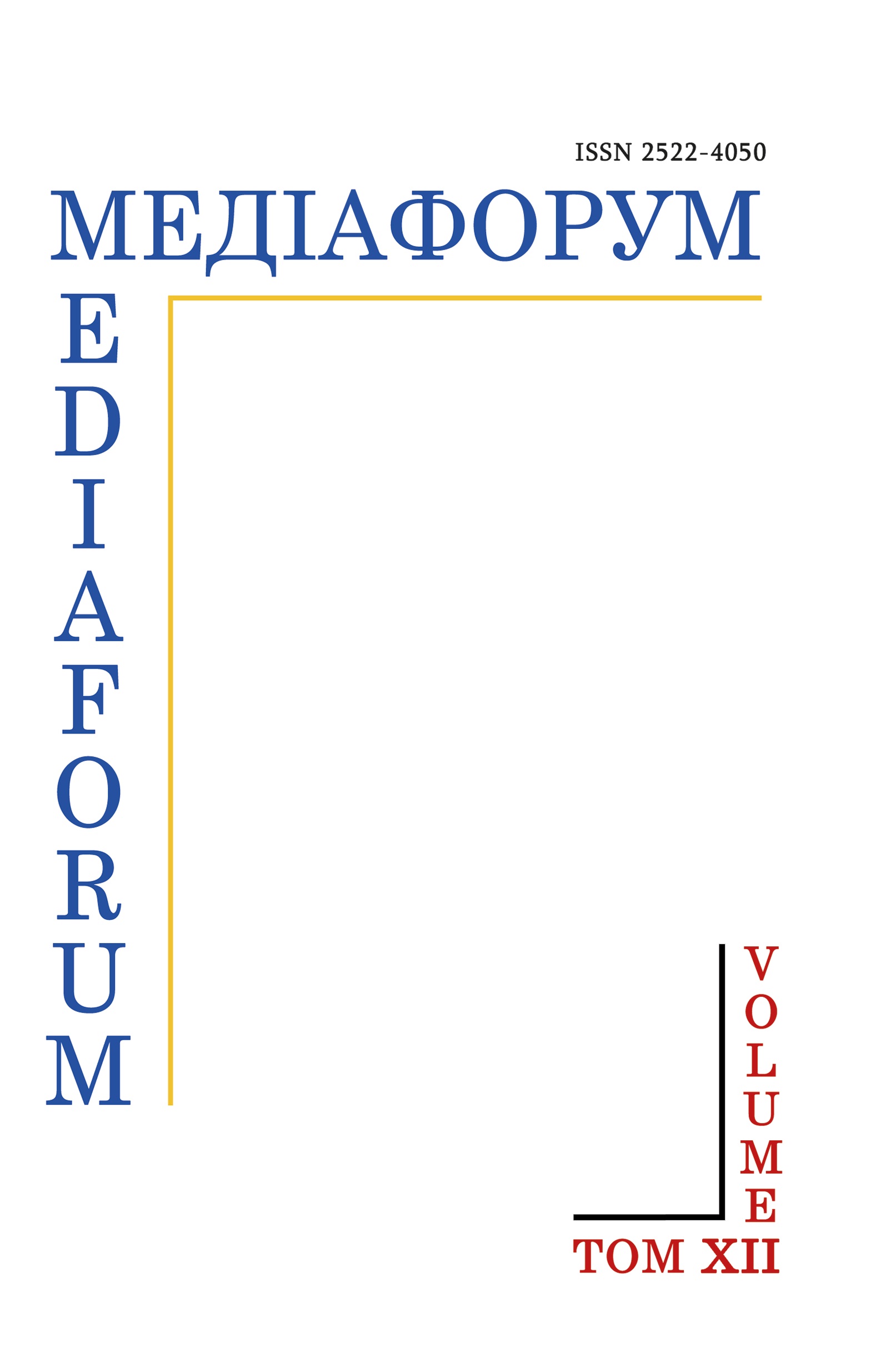Major Concepts of the Turkey Blue Homeland Strategy
DOI:
https://doi.org/10.31861/mediaforum.2023.12.126-144Keywords:
Turkey, military potential, foreign policy, regional cooperation geopolitics, Mediterranean Sea, Black Sea, Middle East, economy, security, terrorismAbstract
The article analyses the key directions of Turkey’s foreign policy under the presidency of Recep Tayyip Erdogan. It examines concepts such as “ba-lance” in relations with the Middle East and the West, which Turkey is trying to achieve through the development of its economy and international trade. The article also focuses on the concept of “security in the East”, which reflects Turkey’s focus on security concerns from terrorist groups on its border with Syria and Iraq. Researchers on this topic also note the strategy of the “new Ottoman space”, which reflects Turkey’s intentions to increase its influence on the countries of the Balkans and the Caucasus.
The article analyses the concept of “active diplomacy”, which consists in establishing diplomatic ties with new states, as well as developing and deepe-ning relations with countries that already have diplomatic ties with Turkey. In addition, the article focuses on the concept of “neighbourhood policy”, which reflects Turkey’s commitment to maintaining peace and stability in the region. The article also examines Turkey’s role in international organisations, such as NATO and the UN, and its “economic diplomacy” strategy, which reflects Turkey’s intention to attract foreign investment and develop trade relations with other countries.
The Blue Homeland Strategy encompasses a number of policies and initiatives, including expanding Turkey’s naval capabilities, improving coordination between the various branches of the military, strengthening relations with allied countries, and promoting economic development in the maritime sector. The strategy emphasises the importance of diplomacy and legal initiatives to protect Turkey’s maritime rights in accordance with international law. “The Blue Homeland is seen as a comprehensive approach to addressing Turkey’s maritime security challenges and protecting its national interests. In addition, the Blue Homeland strategy also plays an important role in achie-ving Turkey’s broader foreign policy goals.
The article provides an in-depth analysis of the main directions and concepts of Turkey’s foreign policy strategy, which helps to understand the complexity and importance of this country’s foreign policy activities in the modern world.
Downloads
References
Moskalyk D. Turets’ka doktryna «Blakytna Bat’kivshchyna». Mavi Vatan doktrini. LIGA.net.https://blog.liga.net/user/dmoskalik/article/turetska-doktrina-blakitna-batki vschina-mavi-vatan-doktrini
Blue Homeland: the doctrine behind Turkey’s Mediterranean claims. The National. https://www.thenationalnews.com/world/europe/blue-homeland-the-doctrine-behind-turkey-s-mediterranean-claims-1.1063591.
Blue Homeland: The Heated Politics Behind Turkey’s New Maritime Strategy. War on the Rocks. https://warontherocks.com/2020/06/blue-homeland-the-heated-politics-behind-turkeys-new-maritime-strategy/.
Colibasanu A. Blue Homeland: Turkey’s Strategy in the Eastern Mediterranean. Euractiv. https://www.euractiv.com/section/global-europe/opinion/blue-homeland-turkeys-strategy-in-the-eastern-mediterranean/.
Columnist, CM Guest. 2021. The EU must act over Erdogan’s push for a ‘blue homeland’. Cyprus Mail. https://cyprus-mail.com/2021/03/13/eu-must-act-over-erdogans-push-for-a-blue-homeland/.
D.C. Rethink Institute. 2013. Turkey’s foreign policy challenges. Washington. Rethink Institute.
Denizeau, Aurelien. 2021. Mavi Vatan, the «Blue Homeland» The Origins, Influences and Limits of an Ambitious Doctrine for Turkey. Paris. Études de l’Ifri.
Gürdeniz, Cem. 2018. Mavi Vatan Yazilari. Istanbul. Kirmizi Kedi Yayinevi.
Institute for Political and International Studies. The Blue Homeland Doctrine of Turkey. https://ipis.ir/en/subjectview/619031/The-Blue-Homeland-Doctrine-of-Turkey.
Polat, Soner. 2019. Mavi Vatan İçin Jeopolitik Rota. London. Kaynak Yayınları.
The Mavi Vatan Doctrine and Blue Homeland Anthem: A Look At Turkey’s Maritime Worldview. Center for International Maritime Security. Fostering the Discussion on Securing the Seas. https://cimsec.org/the-mavi-vatan-doctrine-and-blue-homeland-anthem-a-look-at-turkeys-maritime-worldview/.
Turkey’s ‘Blue Homeland’ ambitions: why Europe can’t afford to sit on the fence. Friends of Europe. https://www.friendsofeurope.org/insights/turkeys-blue-homeland-ambitions-why-europe-cant-afford-to-sit-on-the-fence-but-turkey-can/.
Turkey’s “Blue Homeland”. EVN Report. https://evnreport.com/politics/turkey-s-blue-homeland/.
Turkish Colonialism’s Imagination & the “Blue Homeland”. The Kurdish Center for Studies. https://nlka.net/eng/the-imagination-of-turkish-colonialism-and-the-doctrine-of-the-blue-homeland/.
Syrigos A. The strategy of the ‘Blue Homeland’. News from Greece and the World. eKathimerini.com. https://www.ekathimerini.com/opinion/1198877/the-strategy-of-the-blue-homeland/.
Stein, Aaron. 2015. Turkey’s New Foreign Policy. Routledge. https://doi.org/10.4324/9781315657110.
Stelgias, Nikolaos. 2020. Mavi Vatan (Blue Homeland). Nicosia. CCEIA.
Ünay, Sadik. 2017. Global Political Economy after the Crisis: Theoretical Perspectives and Country Experiences. Istanbul. Nova Science Publishersю, Incorporated.
Yapar, Hakan. 2021. From Strategic Depth to Blue Homeland and Beyond: Understanding Turkey’s Drift towards Greater Strategic Autonomy. Istanbul. Opinion Paper.
Yaycı C. 2022. Blue Homeland. Istanbul. Istanbul University.














